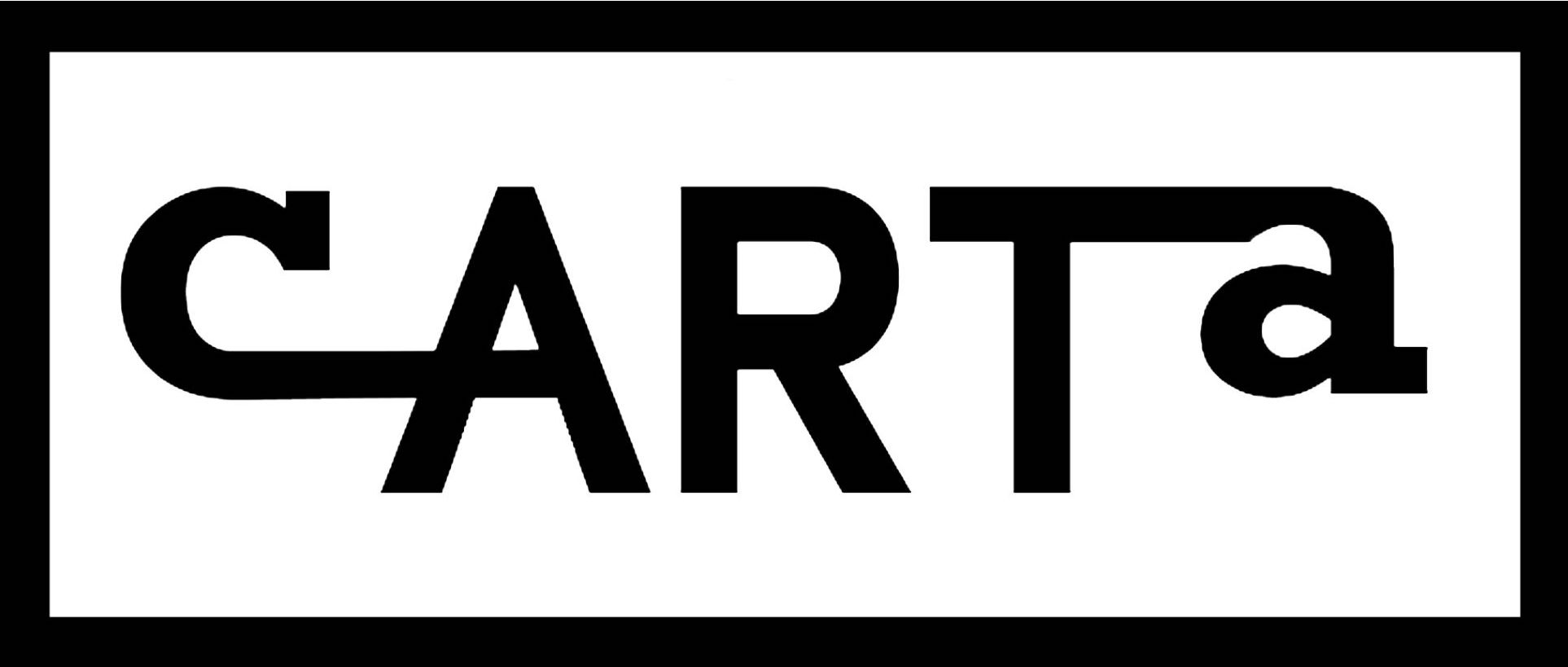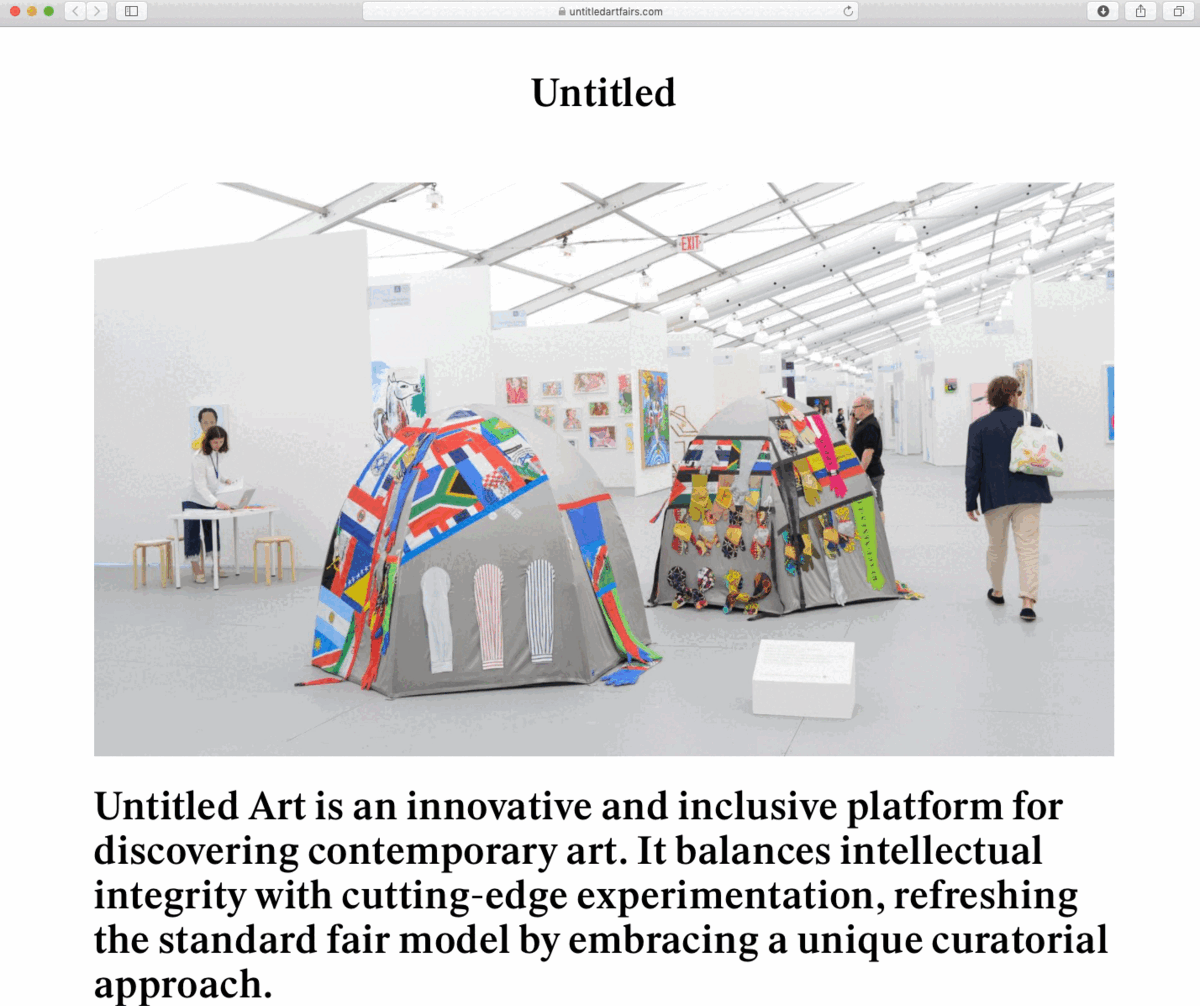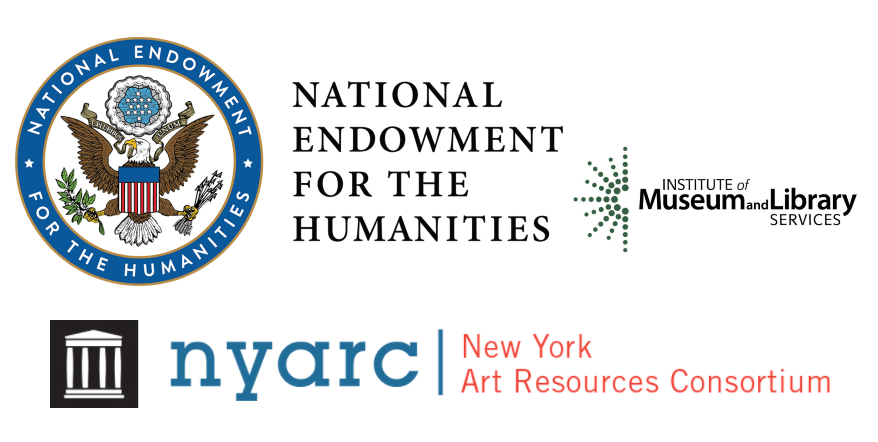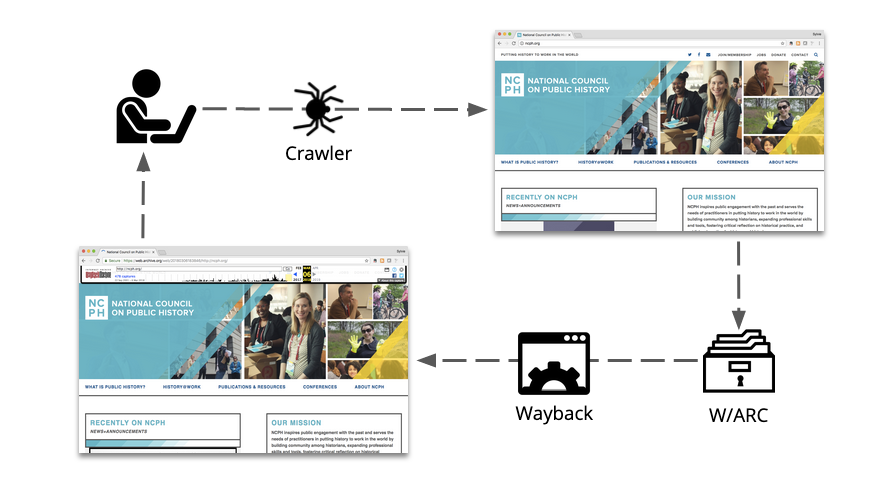
Art historians, critics, curators, humanities scholars and many others rely on the records of artists, galleries, museums, and arts organizations to conduct historical research and to understand and contextualize contemporary artistic practice. Currently, much of the art-related materials that were once published in print form are now available primarily or solely on the web and are thus ephemeral by nature. Without a sustained, coordinated approach to archiving this web-based art material, a significant portion of this content is at risk of disappearing.
The Internet Archive and the New York Art Resources Consortium (NYARC), with generous funding from the National Endowment for the Humanities (NEH) and the Institute of Museum and Library Services (IMLS), have embarked on a collaborative project aimed at capturing and preserving at-risk web-based art materials. The project, Collaborative ART Archive (CARTA), facilitates the development of a collaborative entity of art libraries building collections of archived web-based content related to art history and contemporary art practice. Through this consortial approach, the project will leverage shared infrastructure, expertise and collecting activities amongst participating organizations, scaling the extent of web-published, born-digital materials preserved and accessible for art scholarship and research. CARTA member organizations identify and nominate websites within the scope of eight (8) collection topics, including: Art Criticism; Art Fairs and Events; Art Galleries; Art History/Scholarship; Artists Websites; Arts Education; Arts Organizations; and Auction Houses.
The goals are to promote streamlined access to art reference and research resources, enable new types of scholarly use for art-related materials, and ensure that the art historical record of the 21st century is readily accessible far into the future. These goals will be realized by preserving collections of web content and making them accessible for browsing, full-text searching, and large-scale data analysis via a dedicated CARTA access portal, coming in Fall 2022.
You can view the growing collections on Archive-It.

Current Participating Institutions Include
Join Us
If you are part of an arts organization and are interested in joining us on this project, please contact us.
Read More about CARTA
Internet Archive Blog: Internet Archive Launches Collaborative, Web-Based Art Resources Preservation and Access Initiative
Find more information about the NEH grant: Consortial Action to Preserve Born-Digital, Web-Based Art History & Culture
Find more information about the IMLS grant: National Network of Art Libraries Building Web Archives

Frequently Asked Questions
Basic Information
What is the Collaborative ART Archive (CARTA)?
CARTA is a collaborative project developed from a partnership between the Internet Archive and the New York Arts Resources Consortium (NYARC) aimed at capturing and preserving at-risk web-based art materials.
The project utilizes the resources and professional expertise of a collaborative entity of arts and cultural heritage institutions to build collections of archived web-based content related to art history and contemporary art practice.
The goals are to promote access to digital art reference and research resources, enable new types of scholarly use for art-related materials, and ensure that the art historical record of the 21st century is readily accessible far into the future.
What is web archiving?
Web archiving is the process of preserving websites for long-term storage and access. The goal is to preserve a copy of a website that behaves exactly the way it did on the day it was archived - giving the user an immersive glimpse into the Internet of yesteryear.
The process typically involves using a web crawler to capture all of the content and design elements of a chosen website. The archived website is stored in the WARC file format but it will require additional technology (Wayback, as in the Wayback Machine) to replay and view the website in your browser.

For more information on web archiving, please visit the Web Archiving 101 page by Community Webs for in-depth videos and reading materials.
How is CARTA connected to Community Webs?
CARTA is a project managed by the Community Programs team at the Internet Archive. The same team also separately manages the Community Webs program, but they are not connected through their membership or collections.
CARTA is focused specifically on collecting and preserving online and born-digital art resources through a collaborative entity of art librarians and archivists, while Community Webs is focused on building archives of community/local history content and providing professional development opportunities for public librarians and community archivists.
For more information on Community Webs, please visit https://communitywebs.archive-it.org/.
Membership Information
What kind of organizations can join CARTA, and how do I get involved?
CARTA accepts new art library and institutional members on a rolling basis primarily focused on the United States with continued expansion throughout North America and the rest of the world. Our member organizations mainly consist of museums, academic institutions, and arts non-profit organizations with expertise in art history scholarship and archives.
If you're interested in signing up for CARTA, please fill out our online participation form for consideration.
Do I need web archiving experience?
No, you do not need any web archiving experience to join CARTA. The Internet Archive is handling all of the technical aspects and web crawling for this project, so CARTA members are not required to execute any of the web archiving tasks themselves.
Will I receive an Archive-It account and subscription for my participation in this project? Is an existing Archive-It account required?
No, we are not currently offering any complimentary Archive-It subscriptions for CARTA member organizations. However, if your organization is interested in signing up for Archive-It to build your own web archive of institutional websites and digital materials, please fill out the Web Contact Form on the Archive-It website. There are many flexible subscription options based on your web archiving scope and organization type.
I'm interested in joining, but I'm very busy. What is the expected level of participation from CARTA members?
Minimum participation within CARTA includes quarterly submissions of website nominations and attending bimonthly group meetings for project updates and collaboration. There are many more opportunities for participation in the program in addition to or in place of these activities, including joining a subcommittee focused on a specific area of work such as collection development, metadata, outreach, and end-user engagement.
I'm not eligible to join as a member organization. How can I contribute as a non-member?
Sure, you may still contribute a limited number of website nominations for our collections and/or participate in any future public events without official membership in the collaborative group. If you would like to proceed with limited contributions or subscribe to program updates, please contact us.